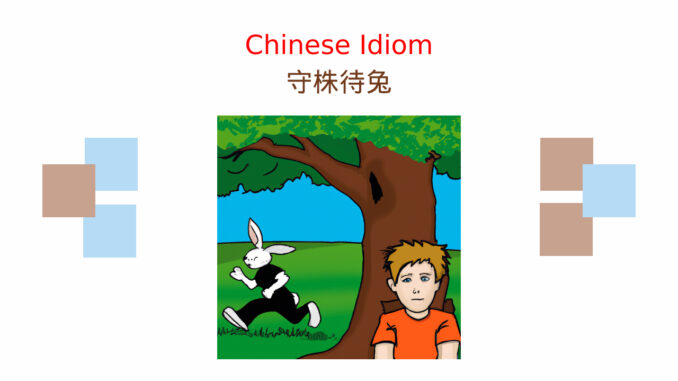
成语“守株待兔”(shǒu zhū dài tù) 可以翻译成英文为“to wait by the stump for hares.”。
这个成语起源于一个故事,一个农民不小心用倒下的树桩击中了一只野兔,于是他决定在原地等待,希望另一只野兔会遇到同样的命运。 形象地说,这个成语用来描述一种被动和闲散的方式,即某人等待成功或机会来到他们身边而不采取任何主动行动。 它表示缺乏主动性和对运气或机会的依赖。
The Chinese idiom “守株待兔” (shǒu zhū dài tù) can be translated into English as “to wait by the stump for hares.” This idiom originates from a story where a farmer, who had accidentally killed a hare by hitting it with a fallen tree. So he decides to wait at the same spot, hoping that another hare would come along and meet a similar fate. Figuratively, the idiom is used to describe a passive and idle approach where someone waits for success or opportunities to come to them without taking any proactive action. It signifies a lack of initiative and reliance on luck or chance.
Leave a Reply